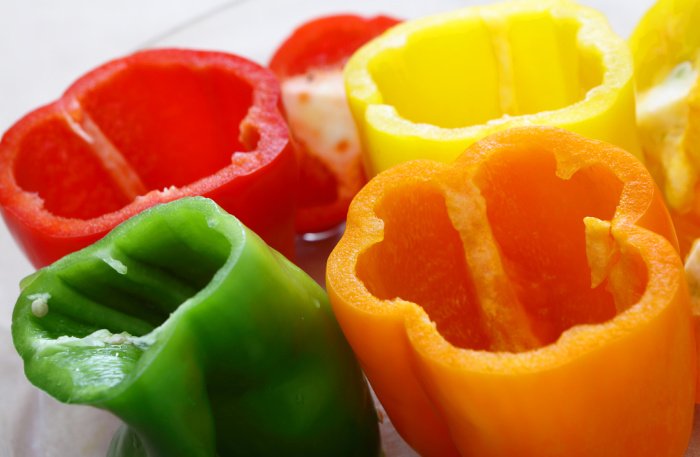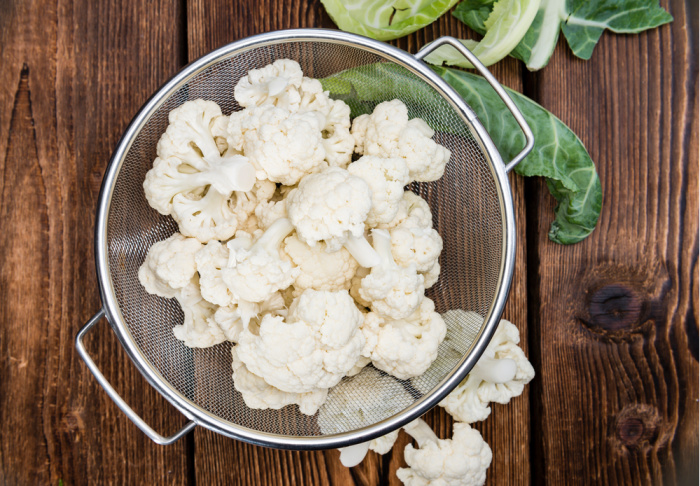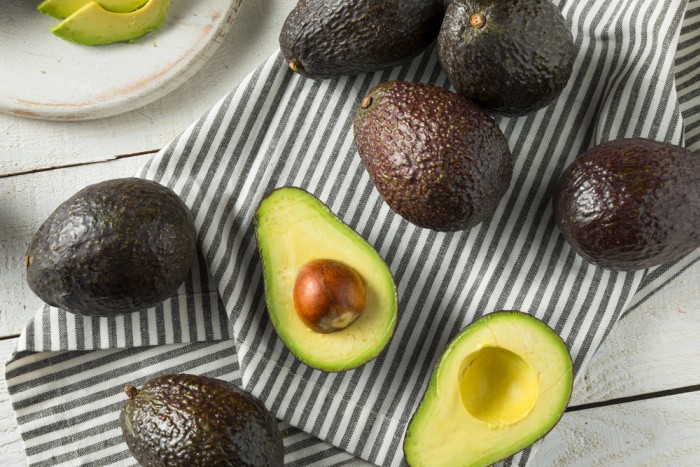Bell Peppers: Everything You Need To Know
Today it’s all about Bell Peppers: Everything You Need To Know. Stuffed bell peppers are hands down one of the best appetizers on the planet, or is that just my own humble opinion?
Their presence in a fajita, a stir fry, or a salad remains unmatched, and oriental food doesn’t taste quite right without them. They happen to be a lot easier to eat, and not spicy like most other peppers out there.
Maybe you’re not a big fan of bell peppers because they’re one of those foods that simply don’t wow you? Perhaps it’s just that you don’t know about the number of ways you could be enjoying them?
I have several different recipes that may surprise you with just how good bell peppers really can be.
Bell Peppers: Everything You Need to Know

Bell peppers also happen to be rich in several different vitamins and minerals that provide you with a number of health benefits. Go ahead and read on to learn more about bell peppers and everything you need to know about them.
Bell peppers, or sweet peppers, are a part of the nightshade family and are similar to chili peppers and tomatoes that also originally were from Central and the northern parts of South America.
There are 9 different types of bell peppers and they can come in all sorts of colors besides green, red, yellow and orange. Others are purple, white, or brown. Each of these colors produces a different taste.
Interesting Facts
This may surprise you, but even though bell peppers are found in the vegetable section at your local grocery store, they are actually considered to be a fruit. It’s true! That’s because they contain seeds and come from the flowering part of the plant.
The bell pepper is the only type of pepper that does not contain capsaicin, which keeps them from producing a burning sensation on our tongue like most other peppers tend to do.
Red, yellow, and orange peppers happen to be green peppers that have been allowed to ripen on the vine more fully. The red bell pepper is considered to be the healthiest because of its long time spent ripening.
Last but not least, bell peppers contain the highest amounts of Vitamin C among other produce, at nearly 3 times more than that of an orange. Red bell peppers contain more than 200% of your daily recommended Vitamin C requirement. That’s incredible!
Nutrition Facts
Most of the calorie content within a bell pepper consists of carbs, with most of them being sugar. There are around 6 grams of carbs for every 3.5 ounces. They have small amounts of fiber, along with potassium, folate and vitamins A, B6, C, E, and K1.
They also contain compounds and certain antioxidants, including lutein, quercetin, violaxanthin, capsanthin, and luteolin, which are all found to be useful in many ways.
Health Benefits
Good for Weight Loss
You’ll find that bell peppers are super-low in fat as well as calories. This makes it a great snack option for dieters, and also a meal solution.
Boosts Immunity
With so much Vitamin C in them, bell peppers can help to give your immune system the boost that it needs to keep you healthy. Red peppers that have been allowed to ripen promise you more vitamin C content.
Helps with Digestion
With the presence of fiber in them, bell peppers can actually help with your digestion. The red pepper contains more Vitamin C than all the rest, helping your gut absorb iron. Iron then goes on to support the good bacteria that is in our gut.
Lowers Cancer Risk
Bell peppers also have several different antioxidants and sulfur that help fight off cell-damaging radicals and lower the risk of several different types of cancer. It too will contain more antioxidants the longer you allow the bell pepper to ripen.
Improves Skin Health
If you are looking to improve your skin health by making it appear younger and more vibrant, bell peppers are one food that will help you on your way. They can also have the same effect on your hair condition.
Promotes a Healthy Heart
With the anti-inflammatory properties that are found in bell peppers, they can help lower inflammation in the arteries, as well as prevent heart disease and diabetes.
Lowers Cholesterol
Bell peppers have small amounts of capsaicin in them, and in turn, help to lower the levels of bad cholesterol in our bodies.
Improves Your Mood
Eating certain foods that contain B6, may actually help to improve your mood. That’s because it helps our brains to produce more serotonin and norepinephrine, both chemicals that can affect our mood. Bell peppers are one of these kinds of food.
Natural Sleeping Aid
Do you struggle with getting a good night’s rest? Bell peppers contain B6, which helps to produce the melatonin needed to regulate your internal clock.
Improve Eye Health
Bell peppers contain Lutein and zeaxanthin, both of which help to improve eye health when enough of them are consumed. This may help decrease the chances of macular degeneration and cataracts, as well as protect your retinas.
By adding bell peppers to your diet, you may be lowering the risk of a number of visual impairments.
Enhances Muscle Function
Potassium is another mineral that works to balance several fluids and other minerals in our bodies. By doing so, not only does it help to regulate our blood pressure, but it also enhances our muscle function.
Helps to Decrease Pain
Another benefit from the anti-inflammatory properties within a bell pepper is that they can help to relieve chronic pain in a number of ways. This is due to vitamins C and K, both helping to reduce any swelling. They may also help to prevent osteoporosis as well.
Risks
There are very few people that need to worry about eating too many bell peppers, but those who show signs of allergic reactions should be cautious. It’s also been found that those who suffer from pollen allergies may have a slight chance of also being allergic to bell peppers.
Final Word
Bell peppers are a great source of nutrients, helping to bring about so many health benefits for you. You may prefer to eat them raw, but here are several other ways in which you can prepare and enjoy green peppers as well.
What did you find most surprising about green peppers and their many health benefits? What do you think about Bell peppers: Everything You Need to Know? May God bless this world, Linda
Copyright Images: Bell Peppers Depositphotos_151414864_s-2019, Cut Bell Peppers Depositphotos_10588031_s-2019























I have trouble eating bell peppers anymore so I had to switch to Banana peppers. the only way I
can eat bell peppers is in stuffed peppers. The thing I do to my stuffed peppers is to parboil them first
and then right I end cooking them I add baking soda. I let it foam up and sit for a few minutes then drain and cool. Stuff as normal. This is the only way I can eat them now. I remember my grandma use to
grow them in her garden, mom did too. I now grow banana peppers.
Hi June, I buy bell peppers and slice them and freeze them in portions I always use. I need to try growing banana peppers, thanks for the tip! Linda
I love bell peppers, stuffed are great but I also dry them in slices that then can be put in the blender and turned into seasoning, sprinkle on spaghetti, or other meals, perks up the flavors….
Hi Jeanne, I love hearing this! I love bell peppers, they really do perk up so many meals! Thank you, Linda